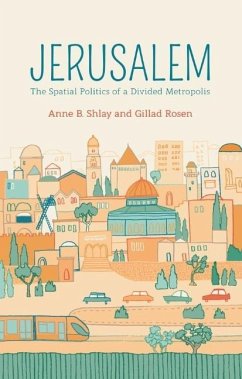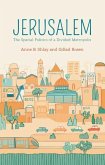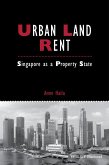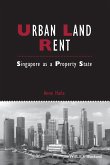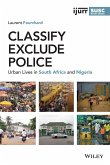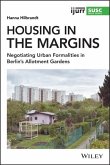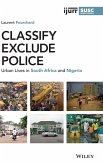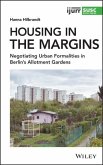Jerusalem has for centuries been known as the spiritual center for the three largest monotheistic religions: Judaism, Christianity and Islam. Yet Jerusalem's other-worldly transcendence is far from the daily reality of Jerusalem, a city bombarded by conflict. The battle over who owns and controls Jerusalem is intensely disputed on a global basis. Few cities rival Jerusalem in how its divisions are expressed in the political sphere and in ordinary everyday life.
Jerusalem: The Spatial Politics of a Divided Metropolis is about this constellation of competing on-the-ground interests: the endless set of claims, struggles, and debates over the land, neighborhoods, and communities that make up Jerusalem. Spatial politics explain the motivations and organizing around the battle for Jerusalem and illustrate how space is a weapon in the Jerusalem struggle. These are the windows to the world of the Israel-Palestine conflict.
Based on ninety interviews, years of fieldwork, and numerous Jerusalem experiences, this book depicts the groups living in Jerusalem, their roles in the conflict, and their connections to Jerusalem s development. Written for students, scholars, and those seeking to demystify the Jerusalem labyrinth, this book shows how religion, ideology, nationalism, and power underlie patterns of urban development, inequality, and conflict.
Jerusalem: The Spatial Politics of a Divided Metropolis is about this constellation of competing on-the-ground interests: the endless set of claims, struggles, and debates over the land, neighborhoods, and communities that make up Jerusalem. Spatial politics explain the motivations and organizing around the battle for Jerusalem and illustrate how space is a weapon in the Jerusalem struggle. These are the windows to the world of the Israel-Palestine conflict.
Based on ninety interviews, years of fieldwork, and numerous Jerusalem experiences, this book depicts the groups living in Jerusalem, their roles in the conflict, and their connections to Jerusalem s development. Written for students, scholars, and those seeking to demystify the Jerusalem labyrinth, this book shows how religion, ideology, nationalism, and power underlie patterns of urban development, inequality, and conflict.

